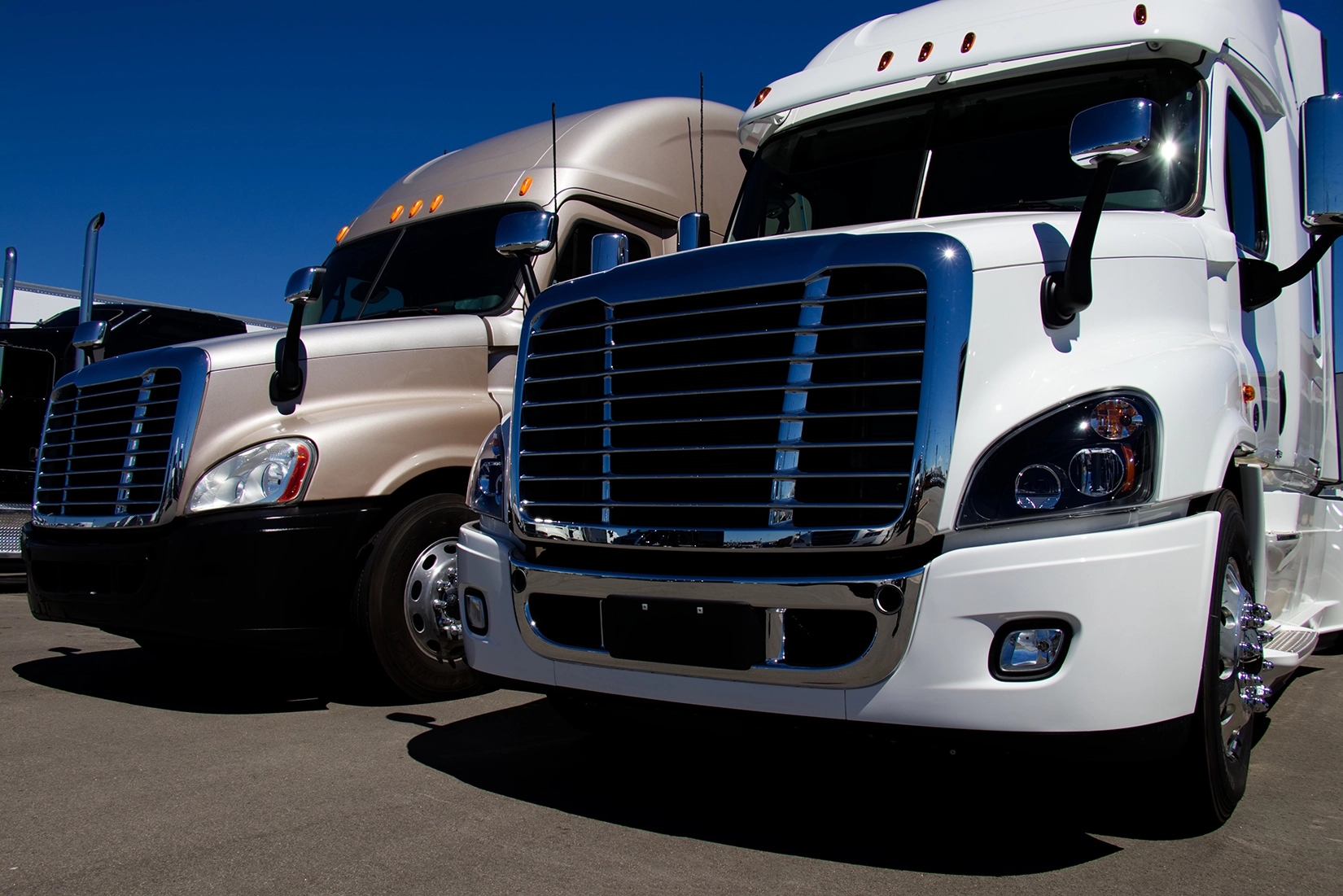Application Form
Please fill out the form below, so we can contact you as soon as possible!

Insurance is essential for trucking businesses to remain sustainable and successful. It protects against a variety of risks specific to the transportation industry. The nature of the trucking business involves moving cargo over great distances frequently under tight schedules and poor weather, thus presenting special obstacles.
In this article, we will give useful advice to owner-operators on how to choose the right insurance provider. By understanding the various risks involved and the types of insurance available, business owners can make informed decisions to protect their assets, employees, and operations. We will provide insights into evaluating insurance providers, understanding policy terms, and selecting coverage that best suits the unique needs of a trucking business.
Knowing the type of insurance you need for your trucking business is essential to having complete protection from the wide range of dangers you face. Trucking companies can have several kinds of insurance coverage, along with the legal regulations they have to follow.
The Federal Motor Carrier Safety Administration (FMCSA) sets the minimum insurance requirements for trucking companies operating in interstate commerce. These requirements include:
Be sure to check both federal and state-specific regulations to ensure compliance with all legal requirements.
The size and nature of your operations will significantly influence your insurance needs. Here are some factors to consider:
Selecting the right insurance provider is essential to ensure that your trucking business is sufficiently covered. Use internet resources, ask colleagues in the field for advice, and check with professionals to get started with your search. While personal recommendations from other owners-operators can provide useful information, search engines, and insurance comparisons, websites can assist in locating providers that specialize in trucking insurance. Additional useful materials and recommendations can be found through professional networks and transportation associations, such as the American Transportation Association (ATA).
When evaluating potential providers, consider their reputation, financial stability, customer reviews, and ratings from independent agencies like AM Best or J.D. Power. Take into account a possible provider’s reputation, financial standing, client testimonials, and rankings from third-party organizations such as J.D. Power or AM Best. Positive customer feedback and a provider’s reputation in the market might be proof of reliability and high-quality service. Independent agencies’ evaluation of financial stability guarantees that the provider can reliably fulfill its insurance obligations. Also, independent ratings and online customer reviews offer a more comprehensive view of consumer happiness and the effectiveness of the provider’s claims handling.
It is especially crucial to choose service providers with prior experience in the transportation industry. Experienced providers are aware of the particular dangers and legal restrictions that owner-operators face, and they can tailor insurance plans to fit their business’s requirements. Specialized providers can also manage claims more effectively, which minimizes downtime and costs. In order to assist you in reducing risks and premiums, they could also provide extra services like safety programs and risk management consulting.
In order to ensure fair comparisons when purchasing insurance for your trucking business, get quotes from several providers online or through agents. Make sure to include consistent information about your activities. Read the fine print carefully, paying particular attention to the exclusions, deductibles, coverage limitations, and additional benefits. Whereas deductibles are the sums you must pay out-of-pocket before coverage kicks in, coverage limits specify the maximum amount that can be awarded in the event of a loss. Understand the exclusions in the policy to find out what isn’t covered, and note any extra perks like roadside help. You can select a policy that provides the best value and protection for your particular needs by carefully analyzing these aspects, guaranteeing thorough coverage and seamless operations.
Good customer service is crucial for your trucking business as it ensures quick and efficient resolution of any issues or questions, minimizing downtime and disruptions. Reliable customer service is essential for understanding policy details, making adjustments, or receiving help during emergencies. A provider with excellent customer service demonstrates a commitment to supporting your business, fostering a strong and trustworthy relationship that can significantly impact your operations.
Take into account the provider’s claim settlement history, response speed, and simplicity of filing claims while evaluating the claims procedure. Straightforward claim filing procedures ease stress during difficult situations, and fast claim processing and response can help you minimize additional losses and swiftly get back to business. Check the company’s track record for quick and fair claim settlements by reading reviews, ratings, and industry reports. Case studies and testimonials from other trucking businesses can also provide insightful information about the performance of the provider. You may make an informed decision by looking at positive reviews and cases of the provider’s claim management methods, which have a track record of successfully assisting trucking companies.
Choosing the right insurance provider for your owner-operator business is a crucial decision that can significantly impact your operations and financial stability. By understanding your specific needs, thoroughly researching potential providers, and carefully evaluating coverage options and customer service, you can make an informed choice that offers the best protection for your business. Remember, the cheapest option isn’t always the best; focus on finding a provider that offers comprehensive coverage and reliable support. Protecting your owner-operator business with the right insurance ensures that you can navigate the industry’s risks with confidence and peace of mind.
Application Form
Please fill out the form below, so we can contact you as soon as possible!